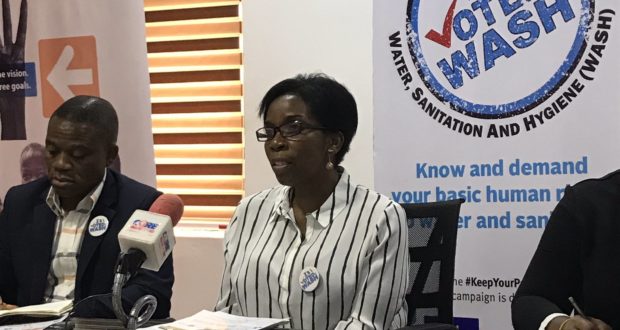WaterAid is calling for urgent action from the Nigerian government and international community to include safe water and sanitation in their plans for dealing with the impact of climate change.

The international organisation made the call in a message to commemorate the 2020 World Water Day observed on Sunday, March 22.
According to scientists, there are currently about 55 million people in Nigeria – 29% of the population – who don’t even have a basic water pump or covered well close to home, which is making it much harder to cope with the growing impacts of climate change.
WaterAid’s analysis of global water access “On the frontline: The state of the world’s water 2020” examines how climate change is making it harder for people in the world’s poorest countries to rely on being able to drink clean water every day, whilst highlighting the currently inadequate amounts of climate finance spent in these countries to help them cope with the impacts of climate change.
WaterAid is calling on Nigeria to include planning for how to provide climate resilient water and sanitation services in its NDC (Nationally Determined Contribution) plans – the document which it is obliged to produce by the Paris Agreement on Climate Change – and its National Adaptation Plans. This sets a baseline from which countries can develop bids to access global climate funding sources.
Nigeria ranks 55th most vulnerable country to climate change – among the top 35% in the world – but only receives $1 per person, per year in climate finance. This is for both mitigation – cutting carbon emissions – and adaptation – reducing the impacts of climate change.
While developing countries contribute very little to global carbon emissions, they are the least prepared to withstand the effects, with little money allocated towards helping them. The average person in Nigeria accounts annually for emissions of 0.546 metric tonnes of carbon dioxide – compared to the average per capita emission in the United States of 16.5 metric tonnes.
Evelyn Mere, WaterAid Nigeria Country Director, said: “No-one can survive without clean water. No-one can thrive if they must struggle to find it. But right now, our changing climate is making life harder for the world’s poorest people who are already struggling to get clean water.
“WaterAid’s report shows that far too little is spent on helping the most vulnerable people adapt to the impacts of climate change which is putting the health and lives of millions at risk. Governments must recognise the vital role clean water plays in helping their people be more resilient to climate change and work to address this urgent threat now so that future generations can stay safe and healthy.
“Climate change also affects the occurrence of infectious diseases. Climatic conditions affect epidemic diseases, shifting the burden of diseases and increasing health risks for the populace. It is therefore crucial that we tackle climate change to mitigate these health risks as well.”
